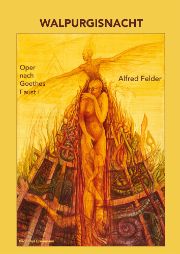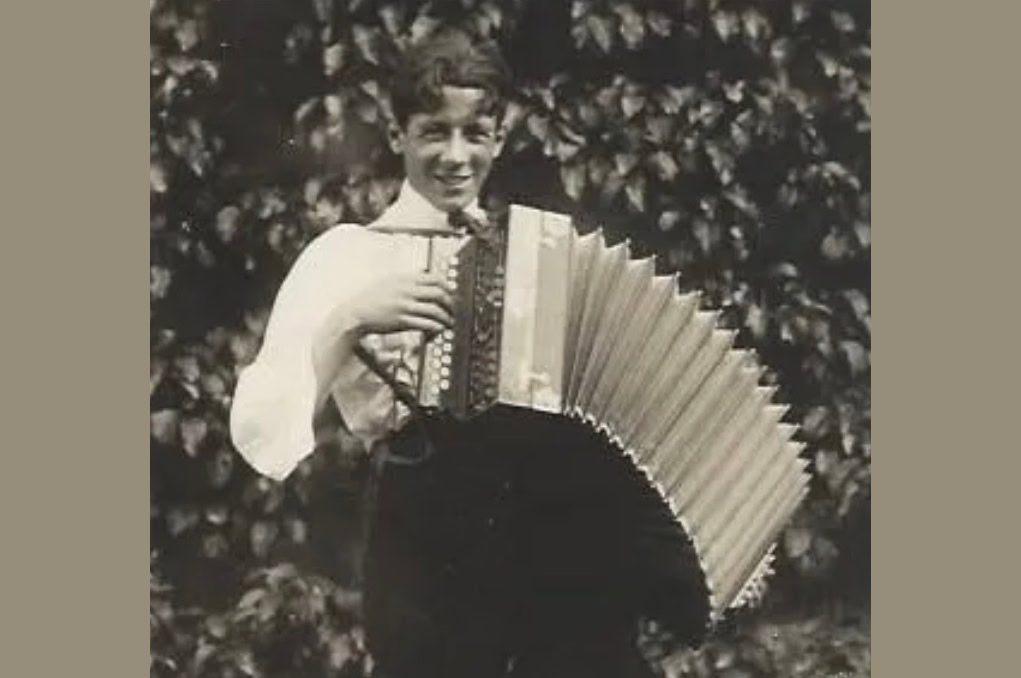With Goethe into the realm of witches
For the world premiere of the 1st and 3rd act of Alfred Felder's opera "Walpurgisnacht" on April 3, 2025 in Winterthur. Performances could not take place in 2020 due to COVID-19.

Composing an opera is the long-held artistic ambition of Swiss composer Alfred Felder (*1950), who was born in Lucerne and lives in Winterthur. On April 3, in collaboration with the Musikkollegium Winterthur, the Zurich Chamber Singers and soloists under the direction of Christian Erny, the Walpurgis Night for the world premiere.
The fact that the road to this was long has to do with the major hurdles for opera composers. The choice of subject matter and libretto is one, the other is the huge apparatus that his score demands. The premiere was scheduled for spring 2020. Just days before the event, the pandemic led to a lockdown, which meant the performance of the 'Walpurgisnacht' - Opera in 2 acts after Goethe's 'Faust' in the Tonhalle Maag on March 27 and in the Stadthaus Winterthur on March 28 with the concert choir Harmonie Zürich and the Musikkollegium Winterthur could not take place.
Revised version
Now, five years later, it is not a question of rehashing what was achieved in 2020. After the long uncertainty about the opera's future fate, the reorganization of the musical forces, but also Felder's further work on the score, the premiere is comparable to a phoenix rising from the ashes. The scene of the junk witch has been added. On the whole, however, the idea and music have not changed. The text, which was written after discussions with the composer in 2020, is therefore reprinted below. We talked about his preoccupation with Goethe's Fistabout the fascination of Walpurgis Night and the peculiarity of his musical language.
Did Goethe and his "commonplace material", set to music in countless approaches and styles, have to do it? For Felder absolutely: The Fist-He had been fascinated by drama since his youth. And if you take a look at his work, you can say that it was heading towards this material, or more precisely, towards "Walpurgisnacht", the scene in the tragedy between the scene in the cathedral - Margarethe's Dies irae - and the final scenes surrounding Gretchen's execution. Unlike Goethe's drama, Felder's libretto, which he wrote himself, does not integrate the witch scene into the tragedy, but rather the tragedy into the witch scene.
Spontaneous celebration of life
-

Flyer using a picture by Lucerne artist Thyl Eisenmann (1948-2015) - Alfred Felder's inspirational friend since his youth.
The original dramaturgy is explained by Felder's interpretation of the mysterious and wicked witches' Sabbath: "For me, the central theme of Walpurgis Night is nature - and women as shamans. Their great knowledge of healing powers and elemental forces has always impressed me very much. Their joyful (witches') sabbats were always a sensual and spontaneous celebration of life for me." Her sympathy for the witches corresponded with her disgust at their persecution. Felder sees Goethe's fate of the child murderess as a witch hunt and goes his own way in his libretto: "I won't let Gretchen die at the end of my Walpurgis Night. As a rebel, she holds up a mirror to us and exposes the hypocrisy of this world. She is to experience mercy on the threshold of execution, as a sign that the patriarchal nature of our world will one day end. A utopian ending?"
Mysticism and shamanism
Felder's view of Goethe's work can easily be related to current discourses. However, his music is not based on intellectual debates, but on experiences of the "other": In his oeuvre, the presence of the shamanic and mystical is striking. The oratorio âtesh is based on poems by the Persian mystic Rūmī, and the catalog of works also includes the Nightsong for flute, viola and harp, which is based on a healing ritual of the Navajo Indians. As a cellist at home in chamber music and symphonies, Felder also uses the Western tonal language as a composer, albeit in his own, free way, which allows him to speak of "tonalizations", of colourings of tonality: "The beginning of the opera is written in a D tonalization, I composed the end (dance) in an E flat tonalization. I colored the D tonality very dark, E flat tonality is actually the lightest tonality to my ears. So the beginning in D, then each scene in a different tonality until the end in E flat tonality - the biggest difference between dark and light, but in the music only half a tone apart, i.e. the smallest possible interval, but the greatest color contrast."
"Foreign" means of sound are used in a targeted manner: In the piano trio The second attention for example, it is the shaman drum; in the Rūmī-inspired open secreta "pure" violin concerto, so to speak, written for the regular line-up of the Musikkollegium, he has the orchestral musicians recite in a whisper. Felder emphasizes that he was never interested in novelty for novelty's sake: "The only novelty you might find in the Walpurgis Night The unusual percussion sounds - wine bottles, biscuit tins, newspaper, spoons, whiskey containers in which marbles circle - are a great sound to kick off the witches' dance."
The feast of the night
Felder has long been associated with the Musikkollegium Winterthur, who commissioned the opera. He has composed a number of works for the Winterthur orchestra, including the much-performed string quartet I moved in as a stranger ...) with reference to Schubert.
With the reworking into a full-length stage work, he considerably expanded the panorama of Walpurgis Night. Faust (tenor), Mephistopheles (baritone) and the witches' chorus were joined by the half-witch and the Fair Witch (mezzo-soprano) and finally the junk witch (coloratura soprano). The choral task also includes the singing of the Dominican Inquisitors. They announce Margaret's execution. And the fact that this third main character appears on Walpurgis Night not just as a vision but as a physical figure and solo part (soprano) is the composer's central decision. This points to the magical vanishing point of the work, which ends with Margarethe and the witches - "what an unexpected meteor" - in the feast of the night and the celebration of spring.
Walpurgis Night
Opera by Alfred Felder after Goethe's Fist, concert premiere of the 1st and 3rd act
Winterthur Town Hall, April 3, 2025
Orchestra: Musikkollegium Winterthur
Choir: The Zurich Chamber Singers
Choir direction: João Martins
Management: Christian Erny
Concert introduction 18.45: Hans-Ulrich Munzinger and Alfred Felder
Alexa Vogel (soprano), Margarete
Sara-Bigna Janett (soprano), junk witch
Leila Pfister (mezzo-soprano), half-witch / beautiful witch
Tino Brütsch (tenor), Faust
Alexandre Beuchat (baritone), Mephistopheles
Soirée (work introduction): April 1, 2025
Editor's note: The text by Herbert Büttiker was first published on March 12, 2020. The current version has been revised to reflect the new circumstances.







